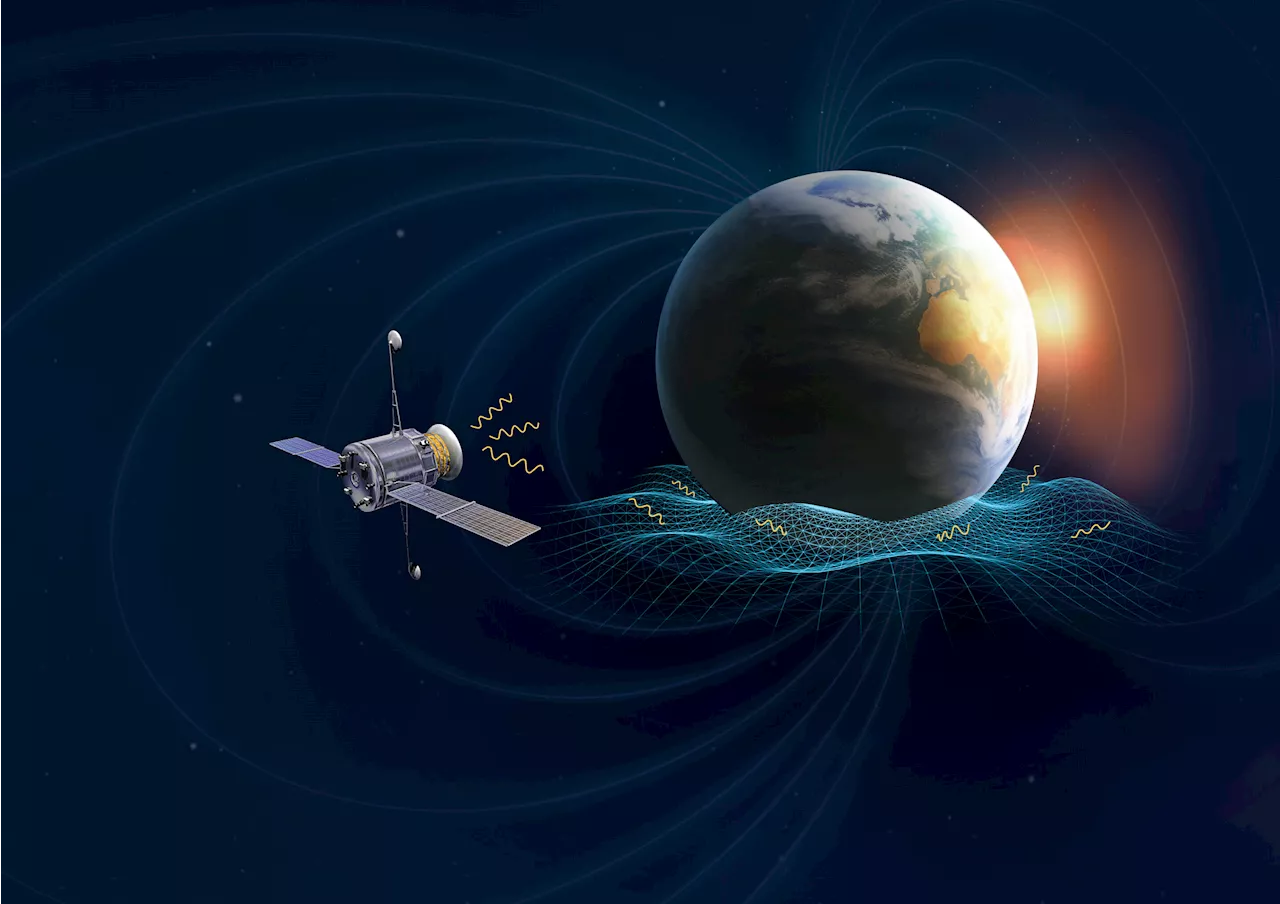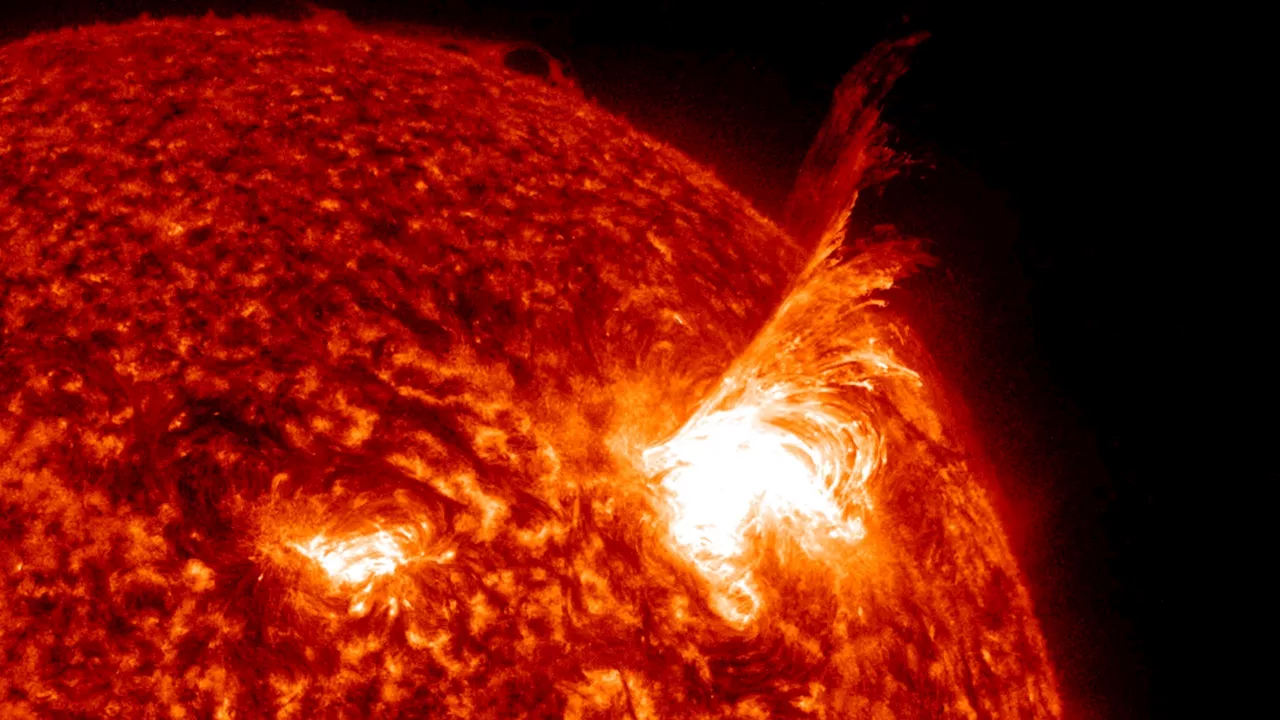It's still just a plan, but a new telescope could soon be measuring gravitational waves. Gravitational waves are something like the sound waves of the universe. They are created, for example, when black holes or neutron stars collide.
Einstein Telescope could launch a new era in astronomy retrieved 12 June 2024 from https://phys.org/news/2024-06-einstein-telescope-era-astronomy.html
This document is subject to copyright. Apart from any fair dealing for the purpose of private study or research, no part may be reproduced without the written permission. The content is provided for information purposes only.6 hours agoUse this form if you have come across a typo, inaccuracy or would like to send an edit request for the content on this page. For general inquiries, please use ourThank you for taking time to provide your feedback to the editors.
Your feedback is important to us. However, we do not guarantee individual replies due to the high volume of messages.to let the recipient know who sent the email. Neither your address nor the recipient's address will be used for any other purpose. The information you enter will appear in your e-mail message and is not retained by Phys.org in any form.Get weekly and/or daily updates delivered to your inbox.
Physics News Science News Technology News Physics Materials Nanotech Technology Science
United States Latest News, United States Headlines
Similar News:You can also read news stories similar to this one that we have collected from other news sources.
 Gravitational waves and the geometry of spacetimeWhen speaking of our universe, it's often said that 'matter tells spacetime how to curve, and curved spacetime tells matter how to move.' This is the essence of Albert Einstein's famous general theory of relativity, and describes how planets, stars, and galaxies move and influence the space around them.
Gravitational waves and the geometry of spacetimeWhen speaking of our universe, it's often said that 'matter tells spacetime how to curve, and curved spacetime tells matter how to move.' This is the essence of Albert Einstein's famous general theory of relativity, and describes how planets, stars, and galaxies move and influence the space around them.
Read more »
 New approach leverages planetary magnetospheres to detect high-frequency gravitational wavesA new method of detecting high-frequency gravitational waves (HFGWs) has been proposed by a research team led by Prof. Tao Liu, Associate Professor from the Department of Physics at the Hong Kong University of Science and Technology (HKUST).
New approach leverages planetary magnetospheres to detect high-frequency gravitational wavesA new method of detecting high-frequency gravitational waves (HFGWs) has been proposed by a research team led by Prof. Tao Liu, Associate Professor from the Department of Physics at the Hong Kong University of Science and Technology (HKUST).
Read more »
 Novel method of detecting high-frequency gravitational waves in planetary magnetospheresA groundbreaking method of detecting high-frequency gravitational waves (HFGWs) has been proposed.
Novel method of detecting high-frequency gravitational waves in planetary magnetospheresA groundbreaking method of detecting high-frequency gravitational waves (HFGWs) has been proposed.
Read more »
 ‘Failed’ solar eruption reveals Sun’s powerful gravitational pullA NASA solar observatory captured a massive 'failed' solar eruption that ultimately succumbed to the sun's immense gravity.
‘Failed’ solar eruption reveals Sun’s powerful gravitational pullA NASA solar observatory captured a massive 'failed' solar eruption that ultimately succumbed to the sun's immense gravity.
Read more »
 ‘Failed’ solar eruption reveals Sun’s powerful gravitational pullA NASA solar observatory captured a massive 'failed' solar eruption that ultimately succumbed to the sun's immense gravity.
‘Failed’ solar eruption reveals Sun’s powerful gravitational pullA NASA solar observatory captured a massive 'failed' solar eruption that ultimately succumbed to the sun's immense gravity.
Read more »
 A Mission to Uranus Could Also be a Gravitational Wave DetectorSpace and astronomy news
A Mission to Uranus Could Also be a Gravitational Wave DetectorSpace and astronomy news
Read more »
